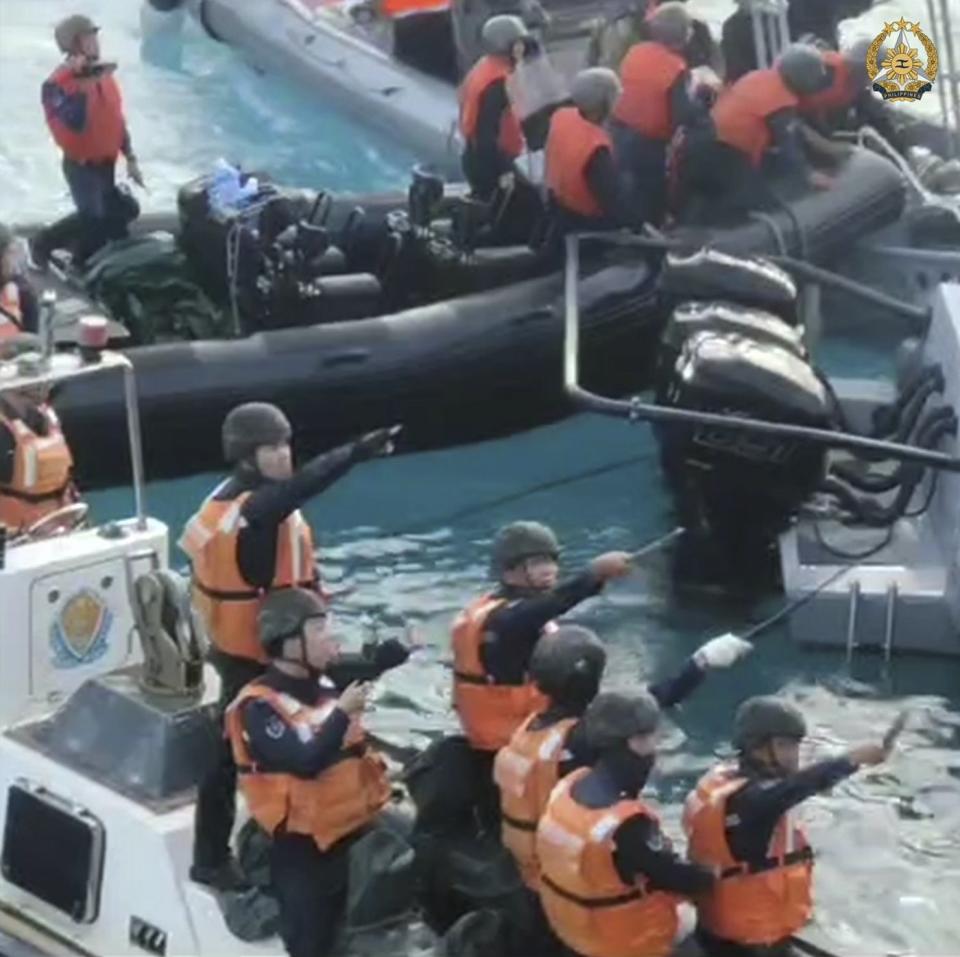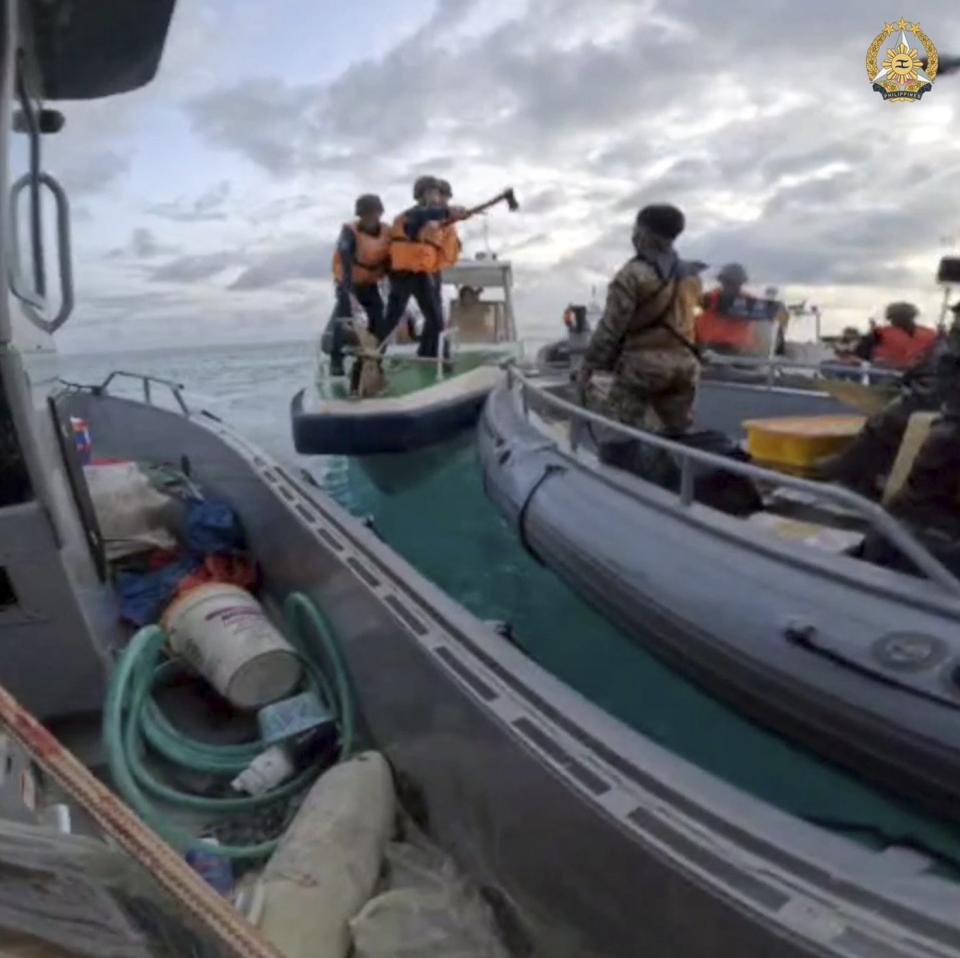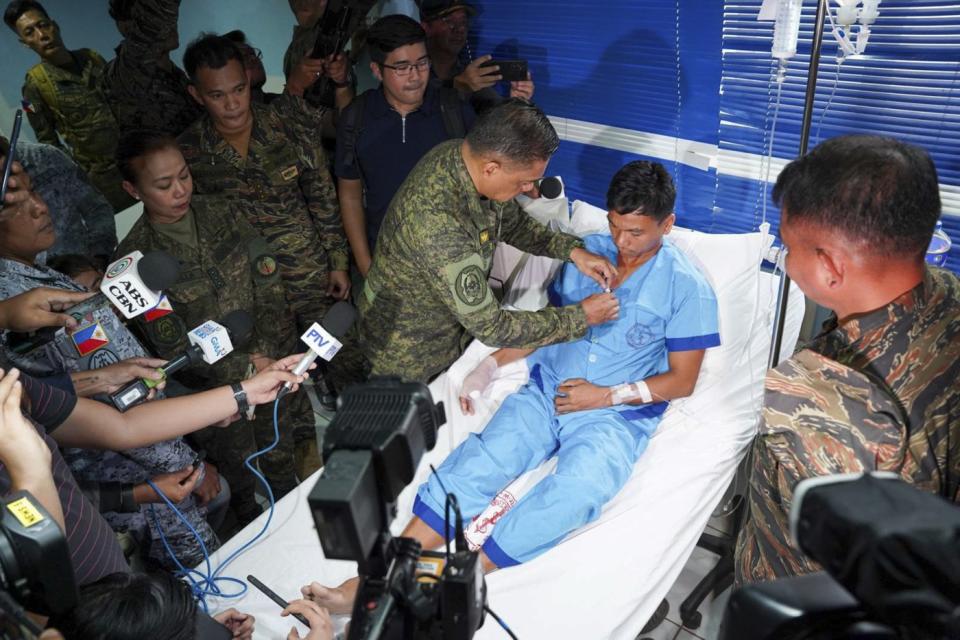Philippines won't invoke mutual defense treaty with US after Chinese confrontation at disputed shoal
MANILA, Philippines (AP) — The Philippines said Friday it has no plan to invoke its mutual defense treaty with the United States after the Chinese coast guard reportedly rammed, boarded and used machetes and axes to damage two Philippine navy boats in a chaotic faceoff that injured Filipino navy personnel at a disputed shoal in the South China Sea.
President Ferdinand Marcos Jr.’s key advisers made the remarks in a televised news conference, squelching speculation that Manila might consider invoking the 1951 treaty to secure U.S. military help after Monday’s confrontation at Second Thomas Shoal, where the Chinese coast guard also seized Philippine navy rifles. The Philippine military chief condemned the incident, likening it to an act of piracy, and demanded that China return the rifles and pay for the damage.
The territorial disputes, which involve China, the Philippines, Vietnam, Malaysia, Brunei and Taiwan, have long been seen as an Asian flashpoint that could pit the U.S. against China if the high seas confrontations escalate into an armed conflict. Washington has repeatedly warned that it’s obligated to help defend the Philippines, its oldest treaty ally in Asia, if Filipino forces, ships and aircraft come under an armed attack, including in the South China Sea.
"That has not been considered in our discussions,” presidential assistant on maritime concerns Andres Centino said when asked if the Philippines was considering activating its treaty with the U.S.
Executive Secretary Lucas Bersamin said the government did not consider the Chinese coast guard confrontation an armed attack as stated in the mutual defense treaty with the U.S.
“This was probably a misunderstanding or an accident. We’re not yet ready to classify this as an armed attack,” Bersamin said. “We saw bolo, axe, nothing beyond that.”
In what critics may see as a concession to China, Bersamin said Marcos approved a recommendation for the government to publicize the schedule when navy personnel are deployed to transport food, water and other supplies to the Philippines' territorial outpost in the shoal. A small Philippine navy contingent aboard a long-grounded dilapidated warship, the BRP Sierra Madre, has occupied Second Thomas Shoal since 1999 but China later deployed coast guard, navy and suspected militia ships in a territorial standoff that has become increasingly volatile.
During the hourslong confrontation at the shoal on Monday, Chinese personnel on board more than eight motorboats reportedly rammed and then boarded the two Philippine navy inflatable boats to prevent Filipino navy personnel from transferring food and other supplies, including firearms, to the Philippine ship outpost.
After a scuffle and repeated collisions, the Chinese reportedly seized the boats and damaged them with machetes, knives and hammers. They also seized eight M4 rifles which were packed in cases and other supplies and wounded a number of Filipino navy personnel, including one who lost his right thumb, two Philippine security officials told The Associated Press on Tuesday.
The Philippine navy said only one person was injured but the two officials said at least five were treated on a Philippine coast guard ship that sailed close to the shoal to help rescue the navy personnel. The two officials spoke on condition of anonymity because they weren't authorized to discuss the sensitive conflict publicly.
China blamed the Philippines for the confrontation, saying the Filipino personnel “trespassed” into the shoal in defiance of its warnings. The Philippines demanded that Chinese coast guard, navy and other ships immediately leave the shoal, which it says is inside its internationally recognized exclusive economic zone, and said it would not yield to Chinese aggression.
Jim Gomez, The Associated Press




